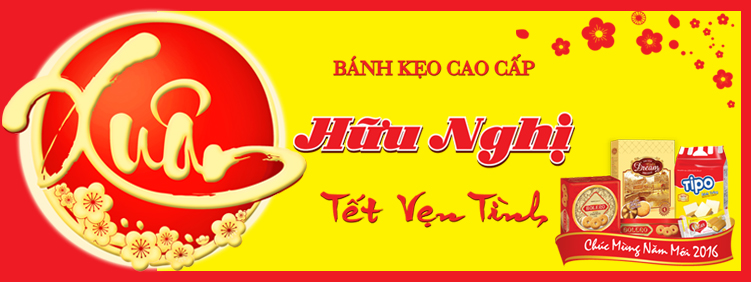Vietnam’s sole tobacco producer to sell entire holdings in confectionery firms
 |
On March 16, Vinataba announced that it would sell its whole 51.74 per cent stake in HNF, equal to 10.35 million shares, between March 17 and April 14.
Established in 1997, HNF was equitised in December 2006, with a chartered capital of VND22.5 billion ($1 million). In March 2011, it became a subsidiary of Vinataba. Since equitisation, it has increased its chartered capital six times by issuing shares to existing shareholders, employees, and Vinataba. The most recent such bout was in December 2014. At the moment, the company has a chartered capital of VND200 billion ($8.8 million), a nearly nine-fold increase since 1997.
20 million shares of HNF started trading on the UpCOM platform in November 2015 with the initial price of VND13,000 (57 US cent). A year later, the price rose to about VND28,000 ($1.23). Today, right after the news broke that Vinataba would sell its stakes, the price rose to VND32,600 ($1.43), the highest ever. Selling the stakes at this price would earn Vinataba 337 billion ($1.48 million).
Just a day earlier, on March 15, Vinataba announced that it would sell the entirety of its 51 per cent stake in HHC, or 8.37 million shares, also between March 17 and April 14, through the stock exchange.
HHC became a subsidiary of Vinataba in 2004. With the current price of the stock at VND36,200 ($1.6), the company expects to earn VND303 billion ($13.3 million) from the divestment.
HNF is one of the biggest Vietnamese confectionery producers, in the same league with Kinh Do Corporation (before it sold its confectionery business to Mondelēz) and Bibica. In 2016, the company reported a revenue of VND1.44 trillion ($63.2 million) and a net profit of VND31.6 billion ($1.4 million), up 13.4 and 23.4 per cent on-year, respectively.
HHC, though smaller than HNF in terms of revenue, is also a major player in the industry. In 2016, the company earned VND855 billion ($37.5 million) in revenue, up 8 per cent on-year, and made a net profit of VND33.5 billion ($1.47 million), up 27 per cent. In the last four years the company has been reporting steady increase both in revenue and profit.
As Vietnam is fast becoming a treasured production base as well as consumption market for the world’s leading confectionery manufacturers, such as Orion, Nestlé, and Mondelēz, investors may not want to pass up the chance to gain a controlling stake in at least one of the two remaining great domestic confectionery manufacturers that have so far been untouched by foreign investors.
An added appeal of HHC is that it has in its hand an attractive land plot.
The company has an idle project at 25-27 Truong Dinh Street in Hanoi. It signed a development cooperation contract with partners in July 2012 to carry out the project, but it fell behind schedule, forcing HHC to look for new partners. As of now, a new contract has been signed with new partners, but due to the government’s suspension of licensing high-rise buildings in inner Hanoi, the project cannot be carried out.
| RELATED CONTENTS: | |
| Confectionery manufacturers forge ahead in Vietnam | |
What the stars mean:
★ Poor ★ ★ Promising ★★★ Good ★★★★ Very good ★★★★★ Exceptional
Latest News
More News
- Vietnamese businesses diversify amid global trade shifts (February 03, 2026 | 17:18)
- Consumer finance sector posts sharp profit growth (February 03, 2026 | 13:05)
- Vietnam and US to launch sixth trade negotiation round (January 30, 2026 | 15:19)
- NAB Innovation Centre underscores Vietnam’s appeal for tech investment (January 30, 2026 | 11:16)
- Vietnam moves towards market-based fuel management with E10 rollout (January 30, 2026 | 11:10)
- Vietnam startup funding enters a period of capital reset (January 30, 2026 | 11:06)
- Vietnam strengthens public debt management with World Bank and IMF (January 30, 2026 | 11:00)
- PM inspects APEC 2027 project progress in An Giang province (January 29, 2026 | 09:00)
- Vietnam among the world’s top 15 trading nations (January 28, 2026 | 17:12)
- Vietnam accelerates preparations for arbitration centre linked to new financial hub (January 28, 2026 | 17:09)














 Mobile Version
Mobile Version